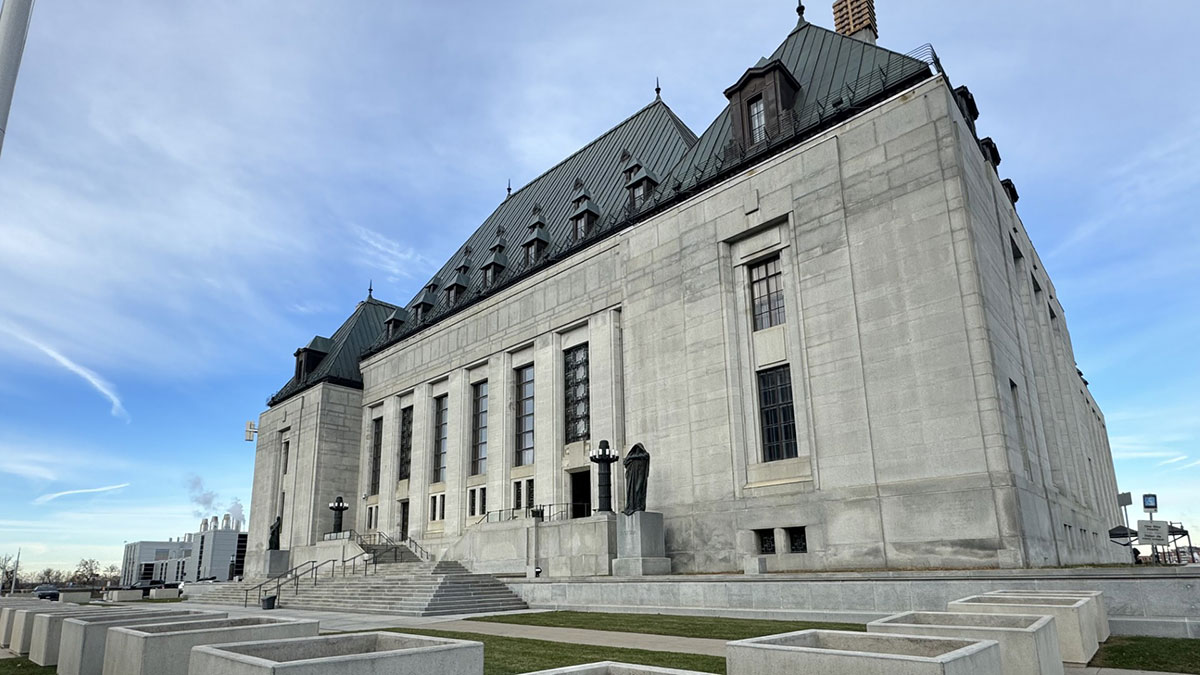The Supreme Court of Canada overturned the acquittal of an accused human trafficker in a decision on Friday that ordered a new trial.
The court found two lower courts in Nova Scotia had erred in acquitting the man, identified only as T.J.F., who was charged with human trafficking his spouse in Halifax, Edmonton, and Fort Saskatchewan, Alta.
“In a criminal legal system built on the presumption of innocence, acquittals are not set aside lightly,” said the Supreme Court in the 7-2 decision.
The court concluded that a Nova Scotia Supreme Court judge mischaracterized T.J.F.’s past violent behavior towards the complainant as not being directly relevant to the charges against him.
The accused, whose name is banned from publication to protect the identity of the complainant, was initially charged with human trafficking and receiving financial benefit from human trafficking.
The Nova Scotia Supreme Court, in a 2021 decision, acquitted the accused of both charges after questioning the credibility of the complainant’s testimony and ruling that evidence of the accused’s past violent behavior was inadmissible in court.
The complainant, known only as J.D., was in a relationship with the accused from 2004-2012. During that time, she alleged that she and the accused had a violent and financially strained relationship, in which she was forced to provide sexual services for money under the threat of violence from her partner. The alleged trafficking began after the accused and the complainant relocated from Halifax to Fort Saskatchewan, before finally settling in Edmonton where sex work became the complainant’s full-time job, and the couple’s main source of income.
The case reached the Supreme Court of Canada after the Crown unsuccessfully challenged the trial judge’s acquittal to the Nova Scotia Court of Appeal. However, a dissenting judge in the appeal court would have ordered a new trial on the grounds that the trial judge mischaracterized some of the evidence.
Statistics Canada figures show 3,996 incidents of human trafficking were reported to police in Canada from 2012-2022. In 2022, 91 per cent of victims were trafficked by someone they knew and 34 were trafficked by an intimate partner, according to the data-collection agency.
Since 2013, the rates of human trafficking in Nova Scotia have far exceeded the national average, prompting notable concern from sex trafficking advocacy groups across the country.
“This is not just an issue in the cities,” said Janet Campbell, CEO of the Joy Smith Foundation, Canada’s leading authority in human trafficking prevention and survivor support. “It is also an issue that happens in rural areas, and people may be surprised by how prevalent an issue human trafficking has become.”
Since 2013, reports have shown an increase in police-reported trafficking incidents, raising the question of how many cases go unreported.
“The individual is often afraid to say anything out of fear of what will happen, either to themselves or to their loved ones,” said Campbell. “Oftentimes, their loved ones are threatened as well. It’s part of maintaining control over the victim.”
Another factor, she said, is that they “feel so much blame and shame” for what has occurred.
“Regardless of statistics, people need to know and understand that this is something that can happen to anyone,” Campbell said. “It is something that is quite literally happening in communities right across our country.”

